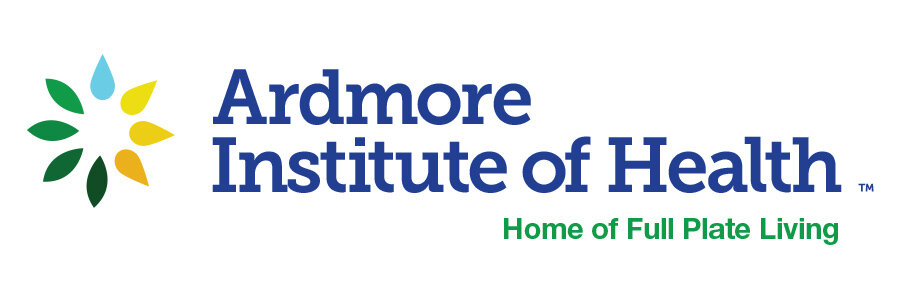A 1/2 an Avocado a Day Keeps the Doctor Away
You’ve heard the familiar adage: “An apple a day keeps the doctor away.” But how does that saying also apply to an avocado, given that 80% of its calories come from fat, versus only 3% in an apple?(1)
Cardiovascular disease benefits
The good news is that it is the kind of fat that makes the difference in health and disease. The majority of fat in avocados is oleic acid, the monounsaturated fat found in olive oil, well-known for its anti-inflammatory heart-protective benefits.(2)
A randomized controlled trial involving 45 healthy overweight or obese adults with high LDL (“bad”) cholesterol showed that one Hass avocado a day, included in a moderate-fat, cholesterol-lowering diet, can reduce the risk of cardiovascular disease (CVD) by significantly decreasingCVD risk factors including: total cholesterol, LDL cholesterol, LDL particle number, small dense LDL cholesterol, LDL/HDL ratio, non-HDL cholesterol and oxidized LDL.(3)
In addition, avocado intake has consistently been shown to significantly increase HDL (“good”) cholesterol.(4)
Other health benefits
Avocados are a rich source of phytosterols, plant sterols which may help lower LDL cholesterol by blocking its intestinal absorption.(3)
One Hass avocado, excluding skin and seed, has 9.25 grams of fiber,(1) which can help meet fiber recommendations for this underconsumed essential nutrient.
Carotenoids are a class of antioxidant phytochemicals that need to be eaten with fat to derive maximum benefit. Consuming avocado with tomato sauce, raw carrots, salsa or a salad significantly increases the absorption of carotenoid antioxidants (alpha and beta carotene, lycopene, lutein), which protect against free radical damage.(5),(6)
Avocado also significantly increases the conversion of alpha and beta carotene to vitamin A.(5)
Eating avocados provides lutein and zeaxanthin, antioxidant carotenoids concentrated in the retina of the eye, especially the macula.These carotenoids can help protect against age-related macular degeneration, the leading cause of blindness in the world.(7)
Avocados contain significant levels of both vitamin C and E, which support each other in their important antioxidant and immune functions.
Surprisingly, one Hass avocado contains 690 mg potassium, quite a bit more than a large banana at 487 mg.(1) All this potassium helps keep blood pressures lower, protecting against strokes and heart attacks.
Avocados are also a good source of other essential nutrients: 6 different B vitamins including folate, as well as vitamin K, copper and magnesium.(1)
Half a Hass avocado included with lunch increased satisfaction and decreased the desire to eat over a subsequent 3 hour and 5 hour period in overweight and obese adults.(8)
Compared to avocado abstainers, avocado eaters in the US tend to weigh less, have smaller waist circumferences, have better overall diets with higher intakes of fruits veggies, fiber and less sugar, have higher HDL (“good”) cholesterol, as well as decreased risk of Metabolic Syndrome.(9)
Recommendations
Eat half a Hass avocado most days of the week, unless your doctor has told you otherwise. No need to buy organic. Thanks to their thick skin, less than 1% of conventional avocados test positive for pesticide residues, making them one of the Environmental Working Group’s Clean 15:https://www.ewg.org/foodnews/clean-fifteen.php
There are many ways to enjoy avocado’s health benefits besides guacamole...though guac certainly rocks! If you need some ideas, check out this link: https://www.healthline.com/nutrition/23-ways-to-eat-avocados#section13
Nocella C, Cammisotto V, Fianchini L, et al. Extra Virgin Olive Oil and Cardiovascular Diseases: Benefits for Human Health. Endocr Metab Immune Disord Drug Targets. 2018;18(1):4-13. doi:10.2174/1871530317666171114121533
Wang L, Bordi PL, Fleming JA, Hill AM, Kris-Etherton PM. Effect of a moderate fat diet with and without avocados on lipoprotein particle number, size and subclasses in overweight and obese adults: a randomized, controlled trial. J Am Heart Assoc. 2015;4(1):e001355. Published 2015 Jan 7. doi:10.1161/JAHA.114.001355
Mahmassani HA, Avendano EE, Raman G, Johnson EJ. Avocado consumption and risk factors for heart disease: a systematic review and meta-analysis. Am J Clin Nutr. 2018;107(4):523-536. doi:10.1093/ajcn/nqx078
Eisenhauer B, Natoli S, Liew G, Flood VM. Lutein and Zeaxanthin-Food Sources, Bioavailability and Dietary Variety in Age-Related Macular Degeneration Protection. Nutrients. 2017;9(2):120. Published 2017 Feb 9. doi:10.3390/nu9020120
Wien M, Haddad E, Oda K, Sabaté J. A randomized 3×3 crossover study to evaluate the effect of Hass avocado intake on post-ingestive satiety, glucose and insulin levels, and subsequent energy intake in overweight adults. Nutr J. 2013;12:155. Published 2013 Nov 27. doi:10.1186/1475-2891-12-155
Fulgoni VL 3rd, Dreher M, Davenport AJ. Avocado consumption is associated with better diet quality and nutrient intake, and lower metabolic syndrome risk in US adults: results from the National Health and Nutrition Examination Survey (NHANES) 2001-2008. Nutr J. 2013;12:1. Published 2013 Jan 2. doi:10.1186/1475-2891-12-1

